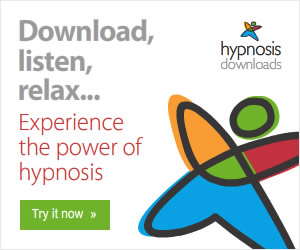As a Master Practitioner of NLP, I learned the fascinating subject of hypnotic language ie how to lead the client to solutions by use of certain words, different viewpoints or simply confusing the conscious mind to give up its resistance to change.
There are some very interesting books about hypnotic language so I want to mention a few:
This text presents a new approach to the use of hypnotic suggestion. For years, hypnotherapists have used scripts which are aimed at a particular problem, like smoking or weight loss, rather than aiming at the client who smokes or has weight issues. Trevor Silvester suggests that it is not the problem that is the problem; it's the client's unique relationship with the problem that's the problem. The book aims to free you from the constraints of scripts and enable you to use your creative skill to weave subtle spells that empower your clients by changing their model of reality. It presents the science behind suggestion, and the means of using that science to create magical ways of influencing others. Using research from neuroscience, evolutionary psychology and NLP, Silvester covers such topics as: how past learning guides us now, and how misinterpretation of our childhood experiences can shape our present; how much of our behaviour is unconscious and often not in our direct control; the matrix model of behaviour that can accurately map the process of a problem; and how our neurological levels organize our version of reality.
"Wordweaving" takes this knowledge and integrates it into a modern understanding of hypnosis to form a step-by-step method for learning powerful hypnotic language.
The "Wordweaving" system teaches you how to: aim suggestions specifically at the key points of the client's problem; resolve problems by using the natural trance states we experience while "doing" the problem; and linguistically frame the suggestion using the elegant and subtle language patterns from NLP to give it maximum impact.
Modern Hypnotherapy involves far more than reading problem-related scripts to clients, it involves understanding the client and using their way of seeing the world to help them with their issue. In "The Question is the Answer", Trevor Silvester shows you how to ask the questions that provide you with the information you need to create hypnotic language patterns specifically for each client, and guide them to finding their own answers to life's problems. Building on the model introduced in "Wordweaving: The Science of Suggestion", you will be able to integrate your suggestions into a model of therapy that guides you from the first appointment to the last, maintaining your focus on the client's outcome, and adapting to the changing situation as it evolves. Using a questioning model developed by his observation of the great Gil Boyne the author shows you how three simple questions can uncover the pattern of a client's issue, and also create their evidence for recovery. How we imagine our future is a key to how we create it.
This book shows you how to guide the client to their most fulfilling future - and provides a script based on scientific research that has been proven to increase how lucky we feel. "The Question is the Answer" is aimed at therapists and counsellors who want to improve their ability to ethically influence, develop amazing hypnotic language skills, and have a therapeutic framework that provides the maximum opportunity for creativity, without sacrificing clarity of purpose.
Discover the secrets of written persuasion!
"The principles of hypnosis, when applied to copywriting, add a new spin to selling. Joe Vitale has taken hypnotic words to set the perfect sales environment and then shows us how to use those words to motivate a prospect to take the action you want. This is truly a new and effective approach to copywriting, which I strongly recommend you learn. It′s pure genius." –Joseph Sugarman, author of Triggers
"I′ve read countless book on persuasion, but none come close to this one in showing you exactly how to put your readers into a buying trance that makes whatever you are offering them irresistible."
–David Garfinkel, author of Advertising Headlines That Make You Rich
"I am a huge fan of Vitale and his books, and Hypnotic Writing (first published more than twenty years ago), is my absolute favorite. Updated with additional text and fresh examples, especially from e–mail writing, Joe′s specialty, Hypnotic Writing is the most important book on copywriting (yes, that′s really what it is about) to be published in this century. Read it. It will make you a better copywriter, period."
–Bob Bly, copywriter and author of The Copywriter′s Handbook
"I couldn′t put this book down. It′s eye opening and filled with genuinely new stuff about writing and persuading better. And it communicates it brilliantly and teaches it brilliantly–exemplifying the techniques by the writing of the book itself as you go along." –David Deutsch, author of Think Inside the Box, www.thinkinginside.com
"Hypnotic Writing is packed with so much great information it′s hard to know where to start. The insights, strategies, and tactics in the book are easy to apply yet deliver one heck of a punch. And in case there′s any question how to apply them, the before–and–after case studies drive the points home like nothing else can. Hypnotic Writing is not just about hypnotic writing. It is hypnotic writing. On the count of three, you′re going to love it. Just watch and see."
–Blair Warren, author of The Forbidden Keys to Persuasion
We each shape our own reality. Perceptions and cognitive processes unique to us determine our individual perspective on the world, and we present to ourselves what we are programmed to see. But what if we could change our perceptions and cognitive processes - and consequently our reality? One way of achieving this is by harnessing the powers of hypnotic language. What this work examines are the structures of the hypnotic sentence, and the very cognitive dimensions that allow hypnotic language to be effective in changing our minds. Defining the three facets that allow the mind to be susceptible to Hypnotic Language Patterns, this book puts these insights into practice in case examples that demonstrate the application and effect of hypnotic language. Teaching us how to create the most effective hypnotic scripts, it provides new language patterns that address beliefs, time orientation, perception, spiritual matters and states of mind, and devises new hypnotic language applications that emphasize the importance of "gestalt principles" and "cognitive factors".
American Journal of Clinical Hypnosis, January 2004
...a useful addition to the therapist’s "resource/reference" shelf.
Understanding Advanced Hypnotic Language Patterns is a concise and accessible guide to a specialist subject and provides new perspectives in relation to the application of advanced NLP. The author successfully bridges the gap between communication theory and practice and demonstrates how language scripts can be applied to complex counselling situations. Written in clear non-technical language this highly readable text will be recommended reading for advanced level NLP students and in fact anyone who seeks to understand the many factors involved hypnotic language patterns. This welcome book simplifies and explains the key steps involved in using hypnotic scripts and provides a useful guide and resource for those who already have a broad understanding of NLP but want to further explore it's possibilities as a change agent. The potential readership of the book is broad but it will be particularly useful for practitioners in the field of healthcare and psychotherapy. The author considers both the strengths and the shortcomings of the NLP model and identifies potential barriers to applying the techniques. Andy Young, Senior Lecturer in Mental Health Nursing, Sheffield Hallam University --Andy Young, Senior Lecturer in Mental Health Nursing, Sheffield Hallam University
Dr. Burton's conceptualization that our perceptions bind our awareness to the resources or problems we find real in our daily life, is a brilliantly written and much-needed contribution to the field. His contribution regarding how we chunk and categorize experience is pragmatically useful to all therapists. I think every psychotherapist should read this book and learn how they can advance the field of therapy by applying its concepts. Stephen Lankton, MSW, DCSW, DAHB Editor, American Journal of Clinical Hypnosis Fellow, American Association of Marriage and Family Therapy President, Phoenix Society of Clinical Hypnosis Past President, Diplomate, American Hypnosis Board for Clinical Social Work --Stephen Lankton, MSW, DCSW, DAHB
This is a fascinating book - and more helpful and interesting than the title would suggest. While not all the ideas are entirely new, it is the first time I have seen them put together in one volume in such an interesting and readable way. I am convinced that this book will be of real benefit to all hypnotherapists - from the newly qualified to the practitioner with several years experience. Ursula Markham, Founder of the Hypnothink Foundation --Ursula Markham, Founder of the Hypnothink Foundation
Or find these books at Amazon.com
Antonia Harrison is the English Hypnotherapist in Belgium and recommends Download Hypnosis Mp3s for immediate access to positive life-changing hypnosis sessions.
Wednesday, 2 February 2011
Hypnotic Language Books
Subscribe to:
Post Comments (Atom)












No comments:
Post a Comment